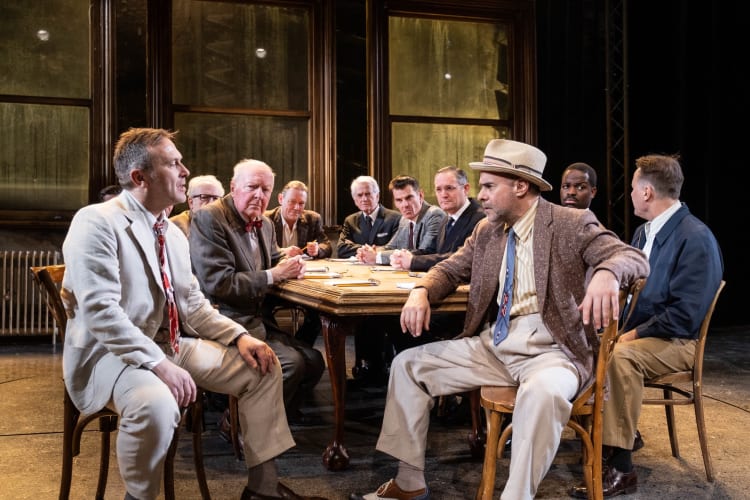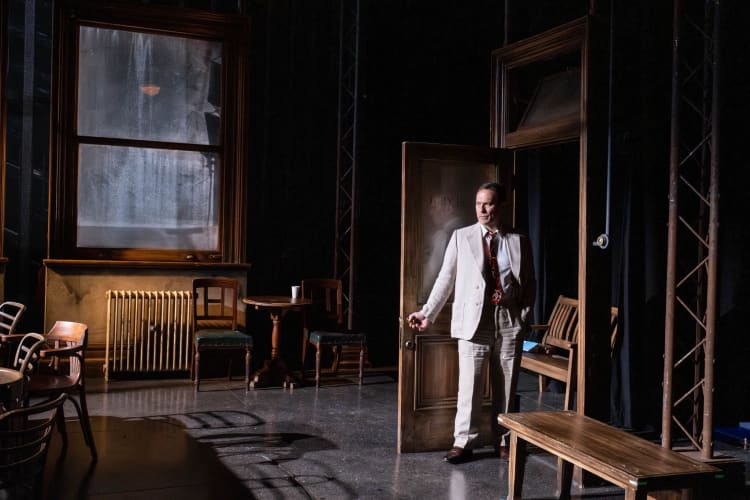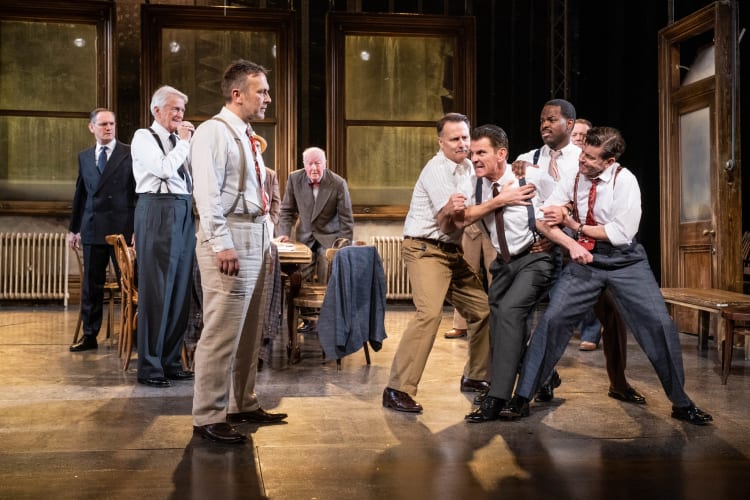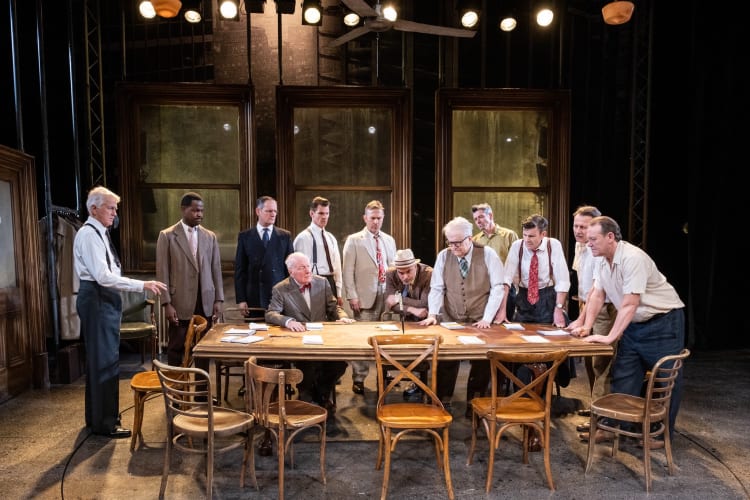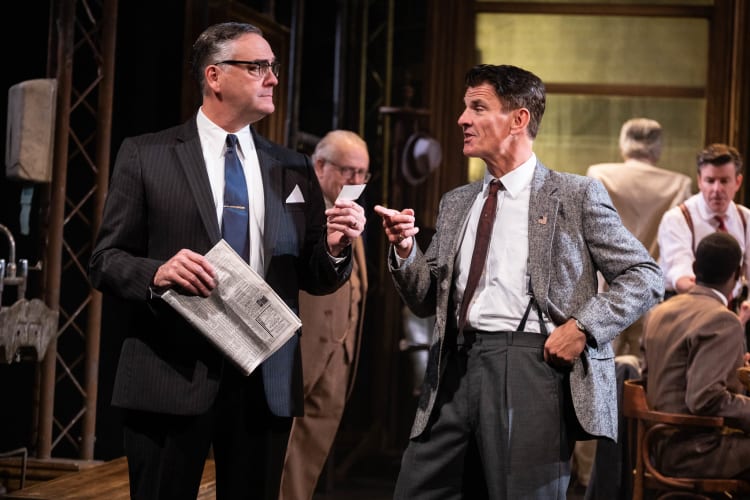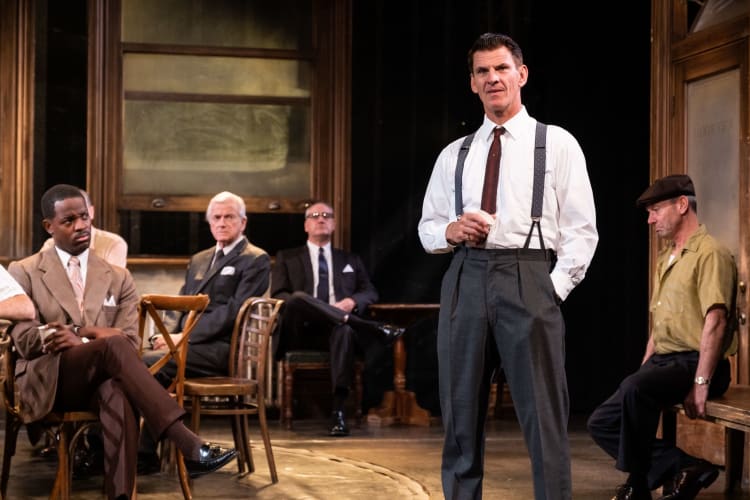Originally written for television and later adapted into a famous film, Reginald Rose’s Twelve Angry Men is both perfect for the stage and a challenge for audiences. The claustrophobic single-set production offers a potentially tense atmosphere, but there is no physical action, and any conflict arises from wordy arguments between the characters.
In a 1950s courtroom, a jury of twelve men (at that time women were allowed to decline jury duty) is asked to consider their verdict in a murder trial. As the offence merits capital punishment, the judge insists any verdict must be unanimous. This does not, initially, seem to be a problem as most of the jurors agree on the defendant’s guilt. Ah, but there is always one awkward person. Juror Eight (Jason Merrells) feels reasonable doubt and insists his fellow jurors explore the case in more depth before reaching a verdict. As time passes and the heat rises, emotions turn increasingly to anger.
Considering the vintage of the play, Reginald Rose’s script holds up remarkably well. His technique of concentrating upon the underlying (and possibly unacknowledged) prejudices of the characters rather than the guilt of the accused is as effective as ever in stirring strong emotional reactions. The dialogue is sharp and punchy: "why are you so polite?", "The same reason you’re not—it’s how I was raised."
Director Christopher Haydon gives a masterclass in subtle storytelling. The period setting—clothing tended to be more formal in the 1950s with collars and ties—adds to the stifling atmosphere. Rather than a claustrophobic mood, Haydon opts for a jittery, edgy vibe. The characters are restless, constantly on the move—upon entering the room, they begin moving chairs and jumping on tables to adjust the ventilation. No-one is at ease and emotions are high from the beginning, and not necessarily anger. There is a strong sense of mutual embarrassment as jurors accidentally reveal too much information about the motivations behind their opinions.
The approach is so successful in grabbing audience attention it takes some time to notice a cinematic flourish. Michael Pavelka’s set is designed so the table, around which the jurors sit, slowly revolves. As in a film, therefore, the face of each member of the jury becomes visible to the audience, even though they do not move from their seats.
Juror Eight is marked as an outsider from the outset. As other characters take their seats around the table, he is alone, looking out of the window. In the style of the ‘good guy’ in a classic western, he is dressed in a white suit. Rather than emulate Henry Fonda, who took the role in the film, Jason Merrells’s approach is in the decent everyman style adopted by Kevin Costner in the early stage of his career. Merrells is, however, combative rather than unassuming—goading his fellow jurors and stirring a violent response to make his point.
An excellent ensemble makes the characters realistic people rather than broad stereotypes. Gray O’Brien and Tristan Gemmill are outstanding. O’Brien’s prejudiced rant about the social underclass is excruciating to endure and a turning point in the play, while Gemmill succeeds in finding some vulnerability underlying Juror Three’s bluster and outer anger.
This is engrossing production of a literate and demanding play featuring a first-rate cast.
